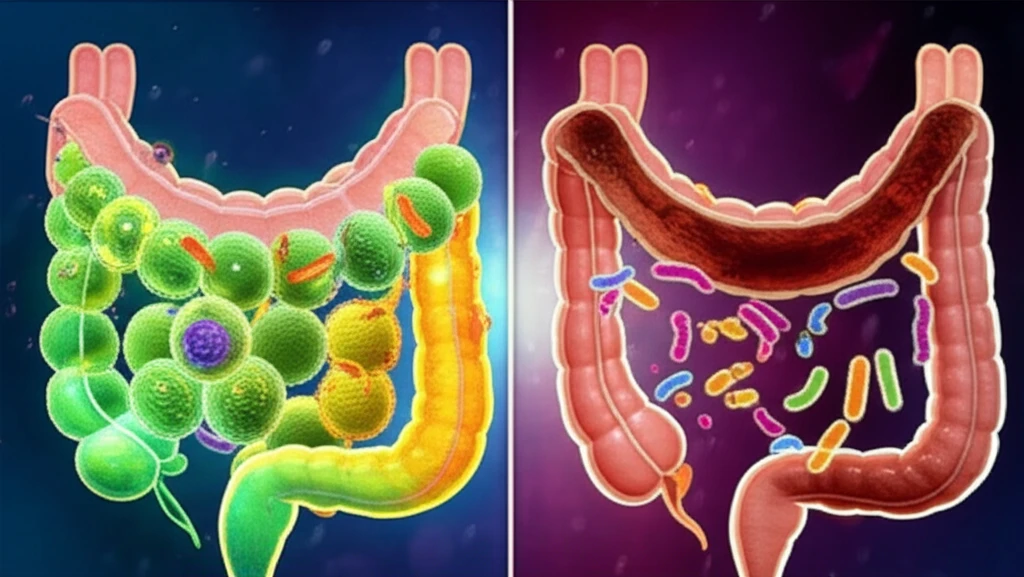
Gut Check: How Th17 and Th22 Cells Protect Your Intestinal Health
"Uncover the crucial role of Th17 and Th22 cells in maintaining gut health and how their depletion can lead to serious health consequences."
The health of our gut is paramount to our overall well-being, influencing everything from our immune system to our mental health. Within this complex ecosystem, specialized immune cells called Th17 and Th22 cells play a critical role in maintaining balance and protecting us from harm. But what exactly do these cells do, and what happens when they disappear?
Progressive human immunodeficiency virus (HIV) and simian immunodeficiency virus (SIV) infections are known to disrupt the gut's delicate balance, leading to a massive loss of CD4 T cells and structural damage. This disruption can increase microbial translocation, where bacteria leak from the gut into the bloodstream, triggering systemic inflammation and contributing to disease progression.
A recent study has shed light on the crucial role of Th17 and Th22 cells in maintaining gut health and the consequences of their depletion during SIV infection. The research, which focused on rhesus macaques, reveals how these cells work together to protect the gut and what happens when their numbers decline.
The Dynamic Duo: How Th17 and Th22 Cells Work Together

Th17 and Th22 cells are types of immune cells that produce important signaling molecules called cytokines. These cytokines, such as IL-17 and IL-22, help regulate the immune response, fight off infections, and maintain the integrity of the gut lining. These cells are mostly in mucosal tissues, where HIV and SIV replicate.
- Highly produce TNF-α and IL-2, cytokines that help regulate the immune response.
- Express CCR5, a protein that can act as a doorway for HIV and SIV to enter cells.
- Show limited cytotoxic functions, meaning they don't directly kill infected cells.
Protecting Your Gut: What You Can Do
While the research on Th17 and Th22 cells is ongoing, understanding their importance highlights the need to protect our gut health. This can be achieved through a variety of lifestyle choices, including a balanced diet, regular exercise, and stress management. If you have concerns about your gut health, consult with a healthcare professional for personalized advice and support.
